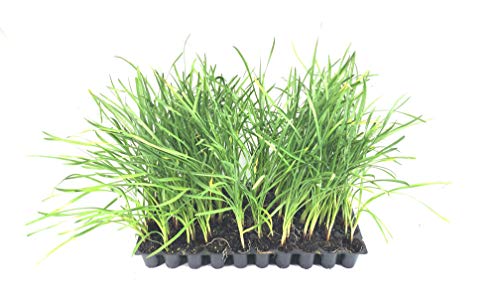As a squirrel expert, I have been observing and interacting with these animals all around the world for several years. Many people are asking me, do squirrels eat mangoes? Not many people are aware that squirrels can actually eat mangoes! That’s right – even though they usually prefer nuts and berries, they surprisingly enjoy this juicy fruit. So if you’re curious to find out more about this unexpected truth, keep reading to discover whether squirrels really eat mangoes.
Do Squirrels Eat Mangoes?
Squirrels can eat mangoes, just like they can eat many other fruits and nuts. Mango flesh is a good source of carbohydrates, dietary fiber, and vitamin A. As part of their diet, squirrels typically also enjoy:
- Acorns
- Pine Nuts
- Hickory Nuts
- Walnuts
- Chestnuts
- Berries
- Vegetables
Nutritional Benefits Of Mangoes For Squirrels
Mangoes offer an abundant amount of essential vitamins and minerals to squirrels. They are a good source of carbohydrates, dietary fiber, and vitamin A. In addition to these health benefits, mangoes also provide squirrels with a sweet taste that they love. Mangos contain fructose, sucrose, and glucose which give them their natural sweetness.
In terms of vitamins and minerals, mangoes are rich in beta-carotene, ascorbic acid, thiamine, riboflavin, niacin, calcium, phosphorus, magnesium, iron, sodium and potassium. All of these contents make the mango a great source of sustenance for squirrels.
Preventing Squirrels From Eating Mangoes from Your Tree
1. Using Tin To Protect Trees
One way to guard against squirrels snacking on your backyard trees is by encircling it with metal flashing material. This acts as a physical barrier they must climb over first before they can access any tasty morsels inside. Additionally, these metal sheets can be decorated with bright colors like yellow or red in order to deter them further.
- Be sure when installing metal sheets around your trees that it doesn’t press too tightly against it – if it’s too snug then moisture will be unable to escape leading to potential rot occurring in the tree.
- Regularly inspect your metal barriers for signs of wear or rusting. If left unchecked this could lead to holes forming in which wild animals could easily slip through.
2. Trunk protectors and Fence Chargers
A trunk protector will add a slippery surface to the trunk of your plants. This can be effective if squirrels can not jump on your mango tree from a nearby tree or structure.
One of the best ways to keep squirrels from damaging your trees is by using fence chargers. Fence chargers are electrical devices that create small, harmless electric shocks whenever a squirrel tries to climb a tree. This method is effective in deterring squirrels, although it requires you to install them around every tree trunk, and they need to be checked on a regular basis.
When considering this type of deterrent, ensure that it meets all safety requirements as outlined in local regulations and that you use it responsibly. Also, be sure to take into account the height at which the fence charger is installed. If placed too low, it may not be effective against particularly agile or determined squirrels.
3. Garlic Spray
Garlic spray has a spicy flavor that is not welcome in most yards. All you need is some garlic cloves, water and liquid dish soap mixed together in a spray bottle. Be sure to apply this mix directly on the bark of the tree every few days for maximum effectiveness.
4. Scarecrow Sprinklers
Another great way to discourage unwanted visitors is by using scarecrow (morion activated) sprinklers in your garden. These motion-sensitive sprinklers emit a sudden burst of water when they detect movement, providing an unpleasant surprise for animals looking for a snack! If you don’t want to invest in one of these devices, you can always rig up a homemade version with some household items.
5. Ultrasonic Devices
Ultrasonic devices emit sound waves at frequencies beyond our ability to hear that have been shown to be effective at keeping many pests away from gardens. While these devices may work on smaller prey like mice and voles, larger animals such as squirrels tend to be more resistant. However, some homeowners have reported success with ultrasonic devices, so it might still be worth trying out.
6. Remove Attractants
- Remove Any Fallen Fruit: Fruit or nuts left underneath trees can attract curious wildlife such as squirrels. This includes fallen fruits and nuts from trees nearby such as pine cones, apples or acorns.
- Keep Your Yard Free Of Inviting Food Sources: It’s important that you keep food sources away from areas where rodents might hide; this means never leaving pet food outdoors overnight or leaving bird feeders out during nighttime hours when rodents are most active.
7. Unappealing Plants
To make your trees unappealing to squirrels, try planting varieties of plants with a pungent smell (like garlic and onions) or different shades of green or brown.
8. Decoy Statues
Large decoy statues can be used to scare off squirrels from rose bushes. The presence of the statues may make the squirrels feel they are being watched and thus deter them from approaching and eating the mangoes of your tree. However, it is important to remember that this is not a fool-proof method, as the statues need to be placed strategically and consistently, in order to effectively frighten off the little critters.
9. Provide A Feeder
If you want to keep squirrels away from your garden trees and their mangoes without resorting to fencing, consider placing a squirrel feeder in your yard. Fill the feeder with seeds and nuts that the squirrels enjoy, and they’ll help themselves while staying away from your trees. That way, you can protect your trees while still letting the pesky critters enjoy a tasty snack.
Just make sure to place the feeders where the squirrels would not do any damage.
10. Encourage Natural Predators
Encourage natural predators to your garden to help keep squirrels away from your rose bushes.
One way to do this is to get a dog or a cat. Those are natural predators and they will for sure chase the squirrels out of your property.
11. Hot Pepper Spray Repellent
Using an organic hot pepper spray can also make it less attractive for squirrels and other animals to snack on your mangoes and make damages to the tree. These special sprays are made from oils derived from cayenne peppers, white pepper, chili pepper conconction and jalapeno peppers mixed with water.
Can Squirrels Eat Mango?
Squirrels are known to enjoy eating a variety of different fruits and vegetables, but do they like mangoes as well? This sweet, tropical fruit can be enjoyed by many animals, including humans, but it is important to understand the potential health risks before feeding it to squirrels. Before we answer this question let’s take a closer look at what squirrels normally eat in the wild.
Mangoes & Sugar Content
The majority of a squirrel’s diet consists of seeds and nuts that have high fat content and low sugar levels. While some people may think that giving mammals sugary treats is safe for them — such as candy or pop-tarts for instance — these items are actually poisonous because their bodies cannot process them properly. The same applies to mangos; while they may seem harmless due to their sweet taste, mangos contain a disproportionately high amount of sugar compared to other fruits.
The sugar content in mangoes is far higher than most other fruits – even compared with bananas – so offering them freely or too frequently could potentially lead to digestive disorders, diabetes and obesity in squirrels if not monitored accurately.
Small Amounts of Mango Flesh or Juice Can Be Safely Eaten by Some Squirrels
Mangos should only be offered as occasional snacks in small amounts since they can be difficult for some species of mammal digestion systems to handle. When eating mango flesh directly from the pit, careful consideration should also be taken into account when selecting the mature fruit: choose ones which are slightly soft on the outside so that their bitter rind won’t upset sensitive stomachs.
For any mammal species especially finicky about taste – such as red pandas or flying foxes – offering some fresh squeezed mango juice instead could take away any worry about unripe bitterness being consumed unintentionally.
What Squirrels Eat
Squirrels have a varied diet of both plant and animal foods. Nuts, seeds, fruits, fungi, grains, invertebrates, and even small vertebrates like birds’ eggs are all on the menu for these scavenging mammals. While certain species may show preferences for particular types of food—such as peanuts or mushrooms—most squirrels will happily munch away on a wide variety of items. And yes, they do indeed eat mangoes! In fact, many squirrels find this sweet, juicy fruit to be a delicious treat.
Mangoes And Squirrels
Squirrels do not typically enjoy the sweet and juicy taste of mangoes, but they may snack on them from time to time. However, squirrels’ diet generally consists of nuts, berries, pine cones, and tree bark. They rarely ingest fruits like mangoes due to their higher sugar content. To stay healthy and energized, squirrels rely on a balanced diet that doesn’t include too much sugar. Mangoes may provide an occasional treat for adventurous squirrels, but they should not be counted on as an essential part of a squirrel’s diet.
Where To Find Mangoes For Squirrels
Mangoes can be found almost everywhere, from supermarkets to farmers markets or even roadside stands. Squirrels are especially fond of these juicy fruits, and they can easily find them if they look in the right places. Homeowners who want to feed their squirrel friends can also provide mangoes, although caution should be taken not to leave them out for too long so that they don’t spoil. With a bit of effort and research, finding mangoes for squirrels doesn’t have to be difficult!
Conclusion
So, the answer to the question: “Do Squirrels Eat Mangoes?” is yes! As part of their regular diet, squirrels can enjoy many types of fruits and nuts, including mangoes. Mango flesh provides a rich source of carbohydrates, dietary fiber, and vitamin A that will help squirrels stay healthy and energized.
Knowing this fun fact about squirrels helps us gain insight into their unique diet. We can use this information to tailor our own meals and snacks so that we too can get the same nutritional benefits that these scurrying creatures get from eating mangoes!
You may also be interested in reading:











